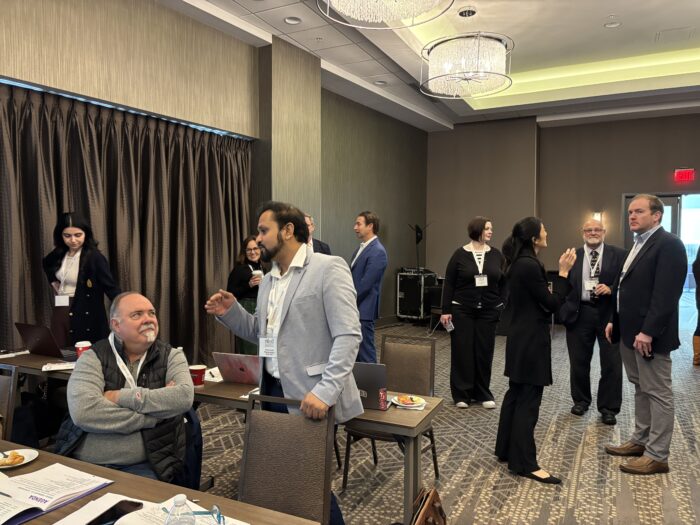I’m thrilled to share the success of the National Foundation for Ectodermal Dysplasias (NFED)’s Incontinentia Pigmenti Conference: Translating Discovery to Therapy last week in Charlotte, North Carolina. This hybrid event brought together participants virtually and in-person from around the world, including leading researchers, doctors, and families affected by incontinentia pigmenti (IP) to discuss advancements in understanding and treating this rare condition.
IP is quite rare, affecting about .88 out of 100,000 people. Individuals with IP can experience a wide range of symptoms affecting their skin, hair, nails, teeth, eyes, and nervous system.
Partnering for Progress
We’re so grateful to collaborate with Oregon Health Sciences University and our wonderful co-chairs, Becky M. Abbott, M.P.H, J. Peter Campbell, M.D., M.P.H, Connie Chen, M.D., and Ian Han, M.D., alongside other dedicated experts and individuals affected by IP. Their knowledge and passion helped shape the discussions and move us closer to better care and treatment options.

Exploring the Science Behind IP
The conference kicked off with complex discussions on the genetics and inheritance patterns of IP—essentially, how the condition is passed down through families and what’s happening at a cellular level. Experts shared insights into how IP affects different parts of the body, as well as the condition’s impacts on the nervous system.

leads teams in the Retinal Imaging and Modeling Lab and the Retinal Transplant Surgery Lab at the
Institute for Vision Research at the University of Iowa.
We also covered IP’s impact on eyesight. Doctors and researchers presented their findings on how the condition can impact vision over time through eye manifestations, how to diagnose problems early through screenings, and the best ways to manage and treat issues such as retinal complications. These crucial insights allowed us to build a greater foundation of understanding on screening guidelines so families and doctors can catch potential problems sooner and take action.
It was also fantastic to see insightful poster presentations from early career researchers during the conference. The NFED is proud to spotlight the work of these young investigators and the important work they are doing in their respective fields.
Honoring Pioneers in IP Research
While the science was certainly a highlight, my favorite part of the conference was our awards ceremony, where we honored two incredible individuals who have made a lasting impact on IP research: Morton F. Goldberg, M.D. and Susanne Emmerich.

We are deeply grateful to Susanne Emmerich, the founder and former director of the Incontinentia Pigmenti International Foundation (IPIF), for her dedication to raising awareness and advancing research. Since the IPIF merged with the NFED in 2020, we’ve been proud to continue her mission.

We also sincerely appreciate Dr. Morton Goldberg for his decades of groundbreaking work in IP research. Dr. Goldberg previously served as director of the Wilmer Eye Institute at Johns Hopkins Institute, and is also the co-founder of the RYR-1 Foundation, which provides international funding for many research projects related to inherited, congenital muscle diseases with RYR-1 mutations.
Looking Ahead
The energy and collaboration at this conference were truly inspiring. We hope these discussions spark even more research and lead to better treatments for those living with IP. A huge thank you to everyone who joined us in Charlotte and virtually around the world—your support is making a real difference!
